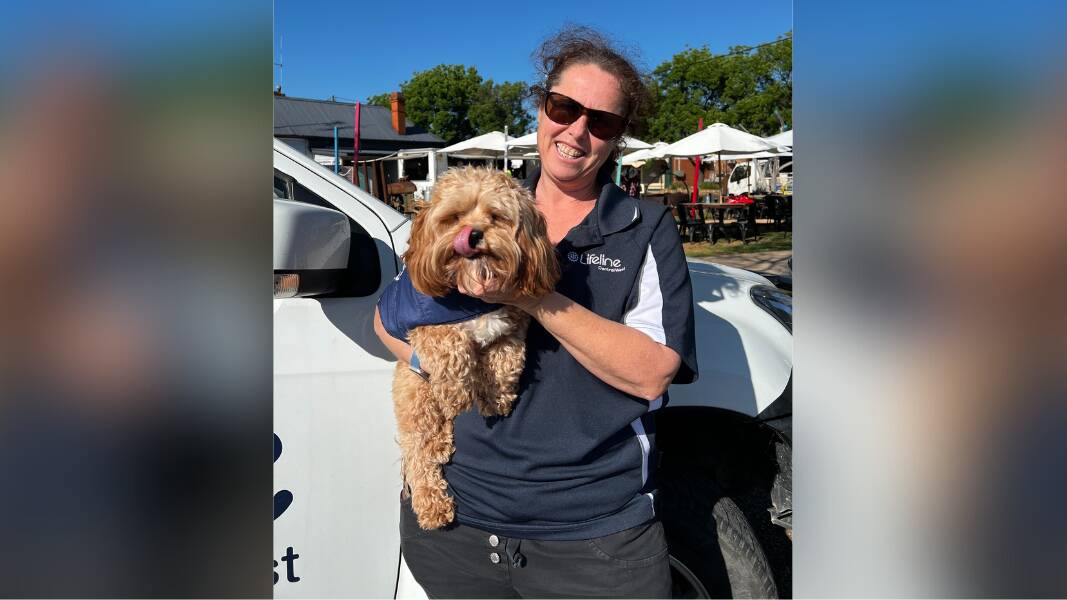If you notice someone is not themselves, tell them you are concerned, and "sit with them on the mud" and listen.
Subscribe now for unlimited access.
or signup to continue reading
This is the advice given by Jodie Williams, Lifeline Central West crisis support manager, who says stigma about mental health - and particularly suicide - remains a major barrier to people seeking help.
Ms Williams suggest saying something like: I noticed you seem down (or upset) - what's happening for you?
This shows the person you want to listen to them - that you care, Ms Williams said.
"If you are concerned they may be thinking about suicide, again you can ask them empathetically. For example, [you could say]: Sometimes when people are feeling upset and distressed they are thinking about suicide. Are you thinking about suicide? If the answer is yes, sit and listen and encourage them to seek help," Ms Williams said.
"If you are unsure what to do or say you can ring Lifeline on 13 11 14 for support, or even phone lifeline together."

October is Mental Health Month and the topic is 'We all have a role to play'.
Ms Williams said she hoped Mental Health Month initiatives would would lead to increasing awareness of mental health and well-being through conversations.
"If we can normalise talking about mental health, hopefully people are more likely to recognise signs in themselves or others, seek help or actively approach people they are concerned about and start a conversation," Ms Williams said.
"Conversations with people about their mental health save lives."
Though society has come a long way in increasing awareness of mental health issues and normalising conversations about mental health, Ms Williams believes there is still stigma in the community and this is a barrier to some people seeking the help they need.
"I think there are still a lot of misconceptions and myths in the community that prevent us from having conversations, recognising we are unwell and/or seeking help," Ms Williams said.
"When the community talks about mental health in a stigmatising way, people who are struggling can internalise these misconceptions, for example, 'It is weak to speak', internalising feelings of shame."
Ms Williams said "some people believe asking someone about suicide may put the idea in their head, research tells us this is not the case".
"Having conversations about suicide and asking someone if they are thinking about suicide allows them to discuss the issues affecting them, and receive help. Conversations about suicide is actually what is the key to saving lives," she said.
According to Suicide Prevention Australia, 3144 people died by suicide in Australia in 2021, and the figure rose to 3249 in 2022. Males are around three times more likely to die by suicide than females, and men aged 45-49 are particularly impacted, the organisation states.
Ms Williams said everyone has mental health and "we all sit on a mental health continuum, whether we are in good mental health, have a few mental health problems or a diagnosed mental illness".
IN OTHER NEWS
"All humans will experience mental health problems, for example feeling overwhelmed, experience a crisis, loss and grief for example, in their lifetime. People with diagnosable mental health illnesses can also be in good mental health," she said.
"Focusing on mental health is also a good opportunity to talk about what keeps us well, to help maintain good mental health and resilience.
"If you notice someone is not their usual self, approach them and have a conversation. Encourage them to talk about how they feel and what is happening for them. Encourage people to seek help if needed and check back in with them."
Lifeline offers services ranging from gambling and financial counselling, to running workshops within schools. The organisation can be contacted on 13 11 14 and also offers a service called 13 YARN, the first Indigenous-led mental health and crisis support hotline, based in Dubbo.
- Support is available for those who may be distressed. Phone Lifeline 13 11 14; Mensline 1300 789 978; Kids Helpline 1800 551 800; beyondblue 1300 224 636; 1800-RESPECT 1800 737 732.
Reading this on mobile web? Download our news app here. It's faster, easier to read and we'll send you alerts for breaking news as it happens.


